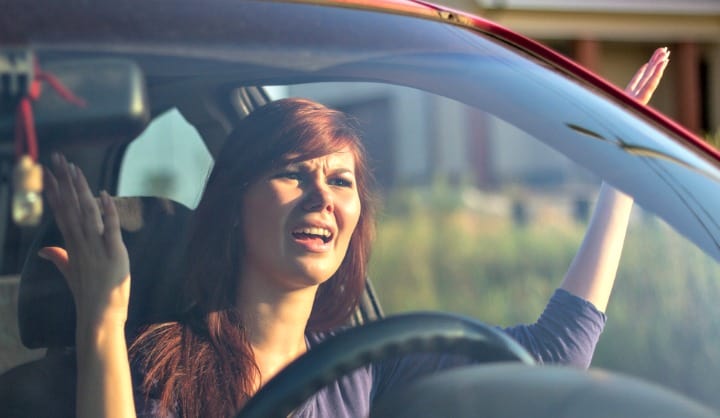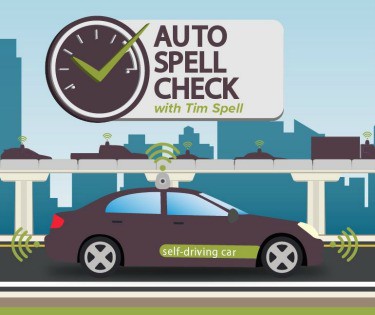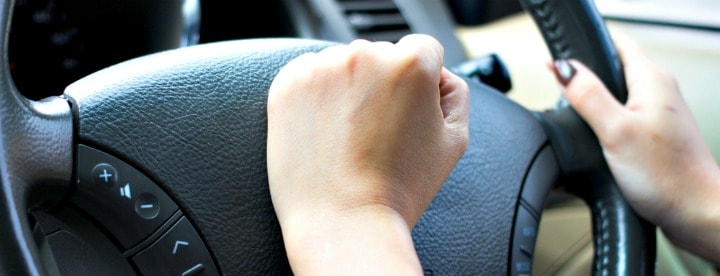Women Just as Likely as Men to Experience Road Rage

Men are more commonly associated with road rage than women, but studies indicate all gender identities tend to exhibit aggression toward motorists and pedestrians who provoke them.
“Generally speaking, males are more likely to be the source and the target of aggressive acts … however, the commonly held perception of women as ‘nonaggressive’ is not entirely accurate,” according to “The Impact of Gender and Stress on Traffic Aggression: Are We Really That Different?” It’s one in a series of studies on driver aggression by a group of psychology professionals from 2004 to 2015.
“In terms of susceptibility to driving stress, overall levels of anger exhibited by young men and women were equal,” the study reports.
A reason that male road rage is more pronounced is because men react to stressful driving situations more aggressively than women at elevated levels of anger, whereas females react more aggressively at lower levels of anger. This has resulted in an underestimation of the female propensity for aggressive acts.
Narcissistic personalities a road rage factor

Individuals with a narcissistic personality disorder react differently, according to the “Personality Predictors of Driver Vengeance” study. Narcissistic drivers with a grandiose-but-fragile self-image and a need for admiration tend to react with rage when they feel insulted by another motorist.
Women with high narcissism tend to be more aggressive than highly narcissist males. Intense incidents involving women aggressors exemplify this finding.
RELATED: 5 Things Uber Drivers Should Know About Insurance
In 2018, there was an episode in Washington, D.C., in which a 20-year-old woman sideswiped a Greyhound bus. When the bus driver made contact with her at a red light and called her a “crazy driver” she became irate. The woman exited her car and, alternately using a baseball bat and car jack, smashed the bus’s windows, windshield and side mirror.
As the bus driver stood in front of her car to call authorities, she returned to her vehicle, drove it forward and struck him. He was able to walk away without significant injury.
Another 20-year-old woman in Lowell, Massachusetts, killed a motorist after an altercation in 2018. He had cut off her vehicle, so she followed him to a parking lot where, after an angry confrontation, she shot him in the chest with a shotgun.
With the increasing number of vehicles and commuters, road rage by women and men is on the rise. People are spending more time on the road, and the American Automobile Association estimates a 7 percent annual increase in road rage.
A divergent 2016 study by Hyundai Motors UK underscores the behavior of these women. It indicates that women are on the average 12 percent angrier than men when behind the wheel. The study analyzed emotional responses of 1,000 drivers experiencing various stressful driving conditions.
Female road rage linked to ‘early warning system’
Patrick Fagan, a behavioral psychologist, ties this female anger when driving with an evolutionary theory that indicates our primeval female ancestors developed an “early warning system” to danger that women still possess.

“Psychologically, women score higher than men on emotional and verbal intelligence, and on the personality trait of neuroticism,” Fagan says. “Evolutionary theory suggests our early female ancestors had to develop an acute sense of danger for anything that threatened them and their young if their cave was undefended while men were out hunting.”
“The Impact of Gender and Stress on Traffic” study subjected participants to various driving situations on predetermined routes, which included conflicting situations with motorists and pedestrians. In one case, a pedestrian illegally crossed an intersection.
CHECK OUT: Ultimate Guide to Car Warranties
“Male and female drivers were equally likely to respond aggressively; failing to stop, forcing the pedestrian to increase his or her walking speed, gesturing or shouting at the pedestrian, or honking their horn at the pedestrian.” At another intersection, participants were honked and gestured at by a male in another vehicle. No gender differences in aggressive responses to the provocation were found.
The study shows males and females equally reported experiencing driver stress and exhibiting mild aggressive behaviors such as horn honking, purposely tailgating other drivers, flashing high beams, gesturing or swearing at other drivers. Participants’ self-reported driving anger and highway violations suggest female drivers become irritated for the same reasons as males.
No matter how your gender identify, InsuranceQuotes help you compare multiple insurance rates to find the best prices on auto policies and coverage.
Auto anonmymity equalizes road rage between sexes
Researchers concluded that anonymity provided by an automobile is the likely explanation for the absence of gender differences in driver aggression. “When in the confines of one’s vehicle,” the study reports, “a driver becomes anonymous; unidentifiable by others and hence not subject to evaluation, criticism, judgement or punishment.” Socialization to their gender role normally restrains aggressive tendencies in women, but “anonymity may provide a rare opportunity for women to disregard this prescribed code of conduct.”
This confidence provided by anonymity especially factors into a woman’s likelihood of engaging in road rage in large urban areas, where chances of repeated interactions with another driver and the risk of retaliation are greatly reduced. The lack of social restraint represents an “equalizing force or weapon, providing both men and women equal power to aggress against those who provoke them on roadways.”

